Introduction of TP-Bridge Courses: "Introduction to Info-Powered Energy" and "Sustainability Studies: Perspectives and Actions Toward a Co-Creative Society"
September 3, 2025
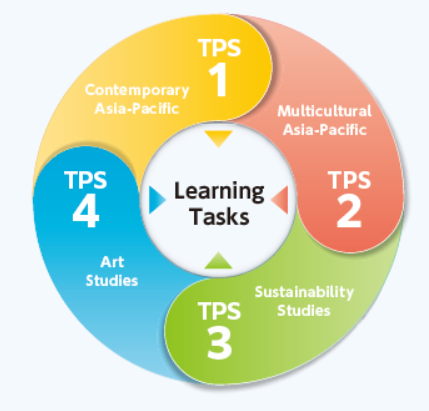
The Training Program for Trans-Pacific Bridge Persons (TP-Bridge) at Tokyo University of Foreign Studies offers approximately 40 Trans-Pacific Studies (TPS) courses covering four areas related to the Trans-Pacific region.
In TPS 3, we offered two courses in the spring semester: "Introduction to Info-Powered Energy," in collaboration with the University of Electro-Communications, and "Sustainability Studies: Perspectives and Actions Toward a Co-Creative Society," with lecturers from the Research Center for Advanced Science and Technology (RCAST), the University of Tokyo.
These courses were conducted in English, bringing together TUFS students and international students to learn and engage in discussions with peers from diverse backgrounds. In this article, we introduce student reflections from each course.
Course Introduction ①: “Introduction to Info-Powered Energy” Active Learning Hour – Visit Report of ModuleX Inc.
"Introduction to Info-Powered Energy" is an omnibus-style course that explores the latest developments in technologies designed to secure and utilize energy—an essential part of daily life— in an environmentally sustainable manner. The course also examines innovative approaches to enriching our lives through technology. As part of the Active Learning Hour and in collaboration with the University of Electro-Communications, on July 8, 2025, we visited ModuleX Inc., a company developing sustainable lighting solutions through technology and design.
This report introduces the visit report by Minami Ono (School of International and Area Studies, Southeast Asia Region 2, Cambodian Language 2nd year), who participated in the company visit.
I enrolled in this course out of a simple interest in learning about research and issues in the energy field. The visit to ModuleX Inc. further deepened my interest and provided a valuable opportunity to gain new perspectives on approaches to addressing energy and environmental challenges.
The most memorable aspect of this visit was how ModuleX Inc.'s philosophy of simultaneously achieving energy conservation and spatial design was embodied in the office. For example, the lighting in the room where we students received a presentation was not multiple lights shining as "points," but rather rectangular lights shining as "surfaces." When lights shine as "points," shadows are cast on objects below them, causing people to perceive the room as dark and adjust the lighting to make it brighter. However, when lights shine as "surfaces," fewer shadows are cast on the desks, making the room feel brighter even when the lighting is dimmer compared to when lights shine as "points." In other words, by changing the shape of the lighting, it is possible to achieve the desired level of brightness with less energy consumption. I had the impression that the term "energy conservation" emphasized reducing energy consumption, so I found the idea of designing spaces that are energy-efficient without conscious effort very interesting. By experiencing the designed space, I realized that comprehensively producing everything from reducing energy waste to the user experience through design could be a major step toward solving energy issues and creating a sustainable society.
Some people might avoid this topic, thinking that since they are in the humanities, they won't understand the details of the science field. In reality, it's difficult to understand everything without prior knowledge. However, through this visit to ModuleX Inc. and the "Introduction to InfoPowered Energy" course as a whole, I learned the importance of learning about the latest research and actual efforts to solve problems in fields I had never encountered before, regardless of whether they were in "liberal arts" or in "science." It was also a valuable opportunity to broaden my horizons by thinking about the challenges in that field from my own perspective. I would recommend this course not only to those interested in the energy field but also to anyone seeking new perspectives.
We would like to express our sincere gratitude to Mr. Goro Terumichi, Representative Managing Director of ModuleX Inc., and everyone else who provided this valuable opportunity. We would also like to express our deepest gratitude to Professor Shinji Yokogawa of the University of Electro-Communications for coordinating this visit.
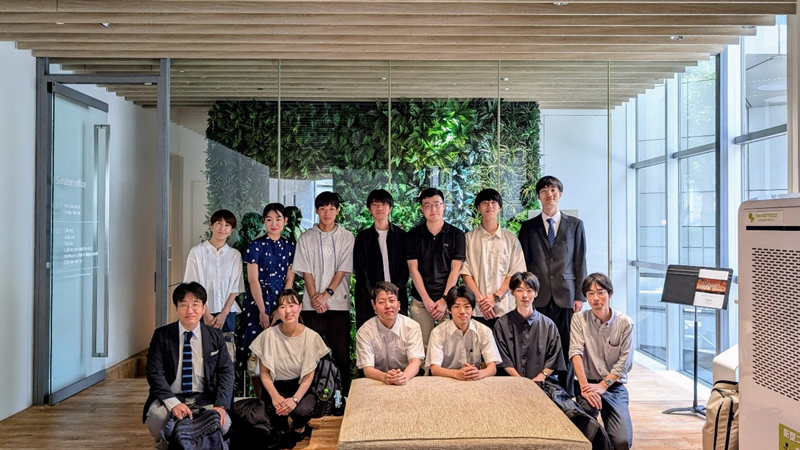
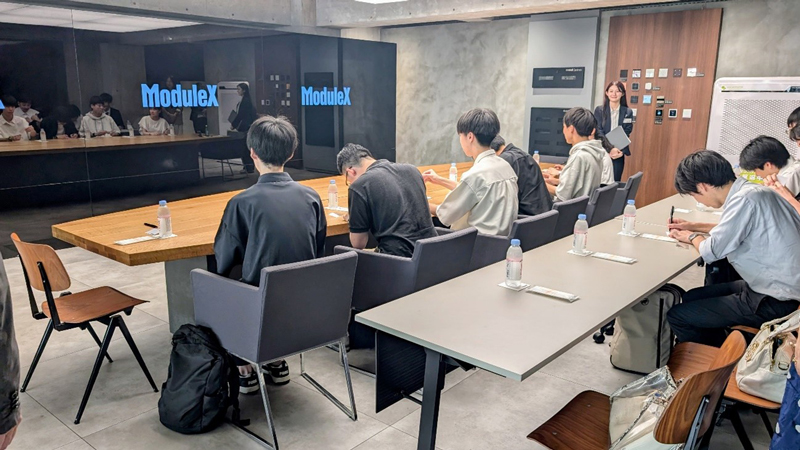
Course Introduction ②: “Sustainability Studies: Perspectives and Actions Toward a Co-Creative Society”
This course was led by Professor Akiko Mori of the Research Center for Advanced Science and Technology (RCAST), the University of Tokyo, and was offered in an omnibus format. A distinctive feature of the course was the opportunity to explore a wide range of topics related to sustainability studies—including disaster management, inclusive society, renewable energy, design and technology, and food issues—in a cross-disciplinary manner. Through the latest research and case studies, students explored the complexity of social issues surrounding the realization of a sustainable society and considered the importance of co-creation and interdisciplinary collaboration. Each week, lecturers from RCAST and other institutions presented cutting-edge interdisciplinary research and initiatives.
The following section introduces excerpts from the students’ final assignments (published with permission), highlighting their reflections on what they learned in this course.
Reflect on what you have learned throughout the Sustainability Studies course and describe how your thinking has changed.
- “Through this course, I learned that interdisciplinary collaboration is not simply about combining knowledge from different fields but about creating entirely new ways of understanding and addressing complex issues. Across sessions—from renewable energy to inclusive design and food sustainability—I was struck by how essential scientific thinking, such as data analysis and systems modeling, was even in topics traditionally considered part of the humanities or social sciences. For example, the lecture on inclusive design demonstrated how engineering, social psychology, and education can intersect to enhance the participation of people with disabilities in science and technology. Similarly, the session on disaster recovery integrated climate science, urban planning, and social policy to build adaptive, community-based solutions. These examples challenged my previous belief that the humanities and sciences are separate domains. I now understand that such divisions are artificial and limiting, especially when addressing real-world problems.”
- “I learned a lot from working with other students, especially international students. In Group Project 1 and Group Project 2, I worked with people from different countries. At first, I was nervous, but I soon found that everyone had different ideas and ways of thinking. For example, when we talked about environmental policies, some students shared how their countries handle these issues. I learned that what works in one country might not work in another, and this made me think more deeply about global solutions. Also, during the final social gathering, I had a great time talking with professors and other students. These conversations helped me understand different viewpoints and made me feel more confident about sharing my own ideas.”
- “Perhaps one of the most eye-opening experiences was learning from other students with diverse backgrounds. Our group discussions revealed that people’s perspectives are deeply influenced by their cultures and life experiences. For instance different priorities in quadrilemma. I choose economy and security always while some colleagues could choose economy and environment and others economy and Human rights. Despite our differences, we found common ground in our shared desire to contribute to the well-being of our communities and the planet. This diversity enriched my understanding and taught me the value of listening, empathy, and collaboration.”
From the students’ reflections, it is clear that they gained an understanding of new possibilities for interdisciplinary collaboration, broadened their perspectives through interactions with peers from diverse cultural and academic backgrounds, and came to recognize that attentive listening, empathy, and cooperation are essential for addressing global challenges. These reflections show that students engaged with the course objectives from multiple angles: “Understand the complexity of social issues through various interdisciplinary studies and case examples related to the realization of a sustainable society and be able to explain these complexities,” “Recognize the importance of co-creation, interdisciplinary integration, and collaboration through the activities and case studies of diverse lecturers, and be able to explain key considerations for these processes,” and “Engage in projects with classmates from different backgrounds, integrate one’s own perspectives with those of others, and effectively reflect this integration in presentations.”
We would like to extend our heartfelt appreciation to Professor Akiko Mori of the University of Tokyo’s Research Center for Advanced Science and Technology, together with all the lecturers who dedicated their efforts to this course.
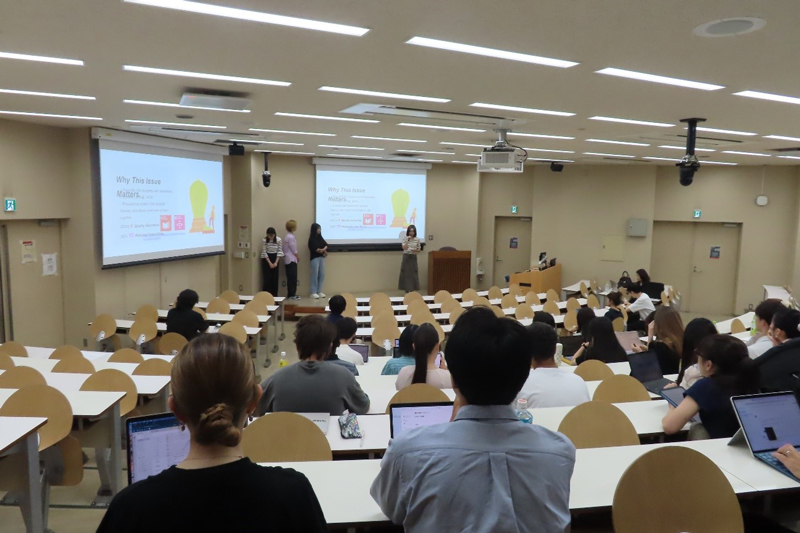
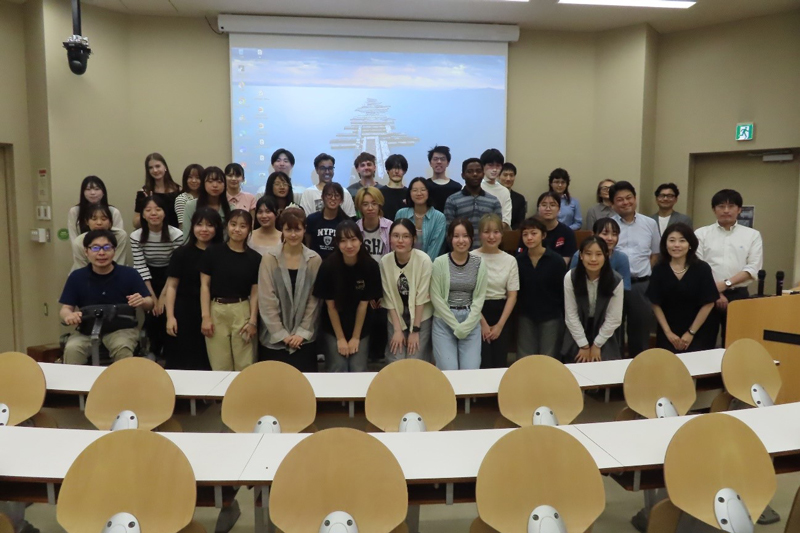
The courses "Introduction to Info-Powered Energy" and "Sustainability Studies: Perspectives and Actions Toward a Co-Creative Society" scheduled to be offered again in 2026. TP-Bridge offers online programs (COIL courses), on-campus programs (TPS courses), and on-site programs (internships and study tours). For more details, please visit TP-Bridge | Tokyo University of Foreign Studies website!
